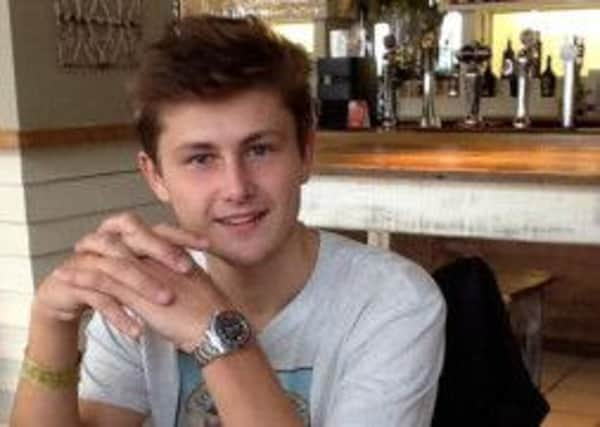Street lights switch-off in Leamington contributed to death of student Archie


But the fact that the street lights had been turned off at the spot where Archie Wellbelove was hit by a taxi contributed towards his death, assistant coroner Richard Brittain concluded at the hearing at the Warwickshire Justice Centre in Leamington on Friday.
The 18-year-old Warwick University student was struck by the taxi in Kenilworth Road in the early hours of December 7 last year - when Warwickshire County Council had just started its new policy of turning off the majority of street lights between 12am and 6am.
Advertisement
Hide AdAdvertisement
Hide AdA statement from Archie’s older brother Henry which was read out at the inquest established that Archie - who lived at the university campus in Coventry - had been drinking on a night out with friends and had been ready to stay the night at his brother’s home in Leamington, but made a decision at 2.40am to leave by foot.
A toxicology report found that Archie had 213 mg/dl of alcohol in his blood on that night.
Both a statement from a fellow Warwick University student who had been in the taxi and the taxi driver Mour Ali, who spoke at the inquest, indicated that Archie was not seen before the taxi struck him.
A taxi driver in the area for 13 years, Mr Ali, who was visibly upset, told the inquest: “Suddenly - bang. I thought, what has hit me? I was looking, looking, looking. I called the ambulance and police and we could not find anything.
Advertisement
Hide AdAdvertisement
Hide Ad“I said I must know what I hit. After 45 minutes we found him. I have been driving in this road for 13 years. But when the lights go off, it’s very strange. I was used to the road being lit.
“Even one year on I am very upset. He was just a kid. My son is the same age.”
Pc Colin Humphreys, the forensic police investigator who examined the scene after the incident, said that the evidence suggested that Archie had been walking along the road with his back to the traffic. He had been wearing dark clothing with his hood up.
Pc Humphreys said: “It’s possible that perhaps in the darkness, he had become disorientated and may have been unaware of the existence of the footpath on the other side of the road.
Advertisement
Hide AdAdvertisement
Hide Ad“The decision to turn off the street lighting should also be taken into account as lights may have allowed the pedestrian to see and be seen.”
Pc Dean Male, who orchestrated a reconstruction of the incident, pointed out that there had been a sleet shower at the time of the crash, which “could have had a detrimental effect on the driver”. The officer also stated that the high volumes of alcohol in Archie’s system would have affected his awarness of hazards and decision-making ability.
He added: “At 40 mph, the driver would have literally had two seconds to have seen the pedestrian and reacted. It certainly would have been a benefit to have had the street lights on as an aid for the driver and for Archie.”
Graeme Fitton, head of transport and highways at Warwickshire County Council, also answered questions at the hearing and confirmed that the street lights at that point in Kenilworth Road continue to be turned off at night, even though a review which took into account Archie’s death has been carried out recently.
Advertisement
Hide AdAdvertisement
Hide AdArchie’s father Grant Wellbelove, who lives in Biggleswade, also spoke at the inquest about his son, describing him as “a very bright boy with a very bright future - very sporty, very well loved and very affable”.
After a hearing that lasted for almost five hours, Dr Brittain recorded a narrative conclusion and called for another review into the street lights policy for that stretch of Kenilworth Road. He said: “Archibald Wellbelove died from injuries which resulted from a road traffic collision.
“There are a number of factors, which taken together, materially contributed to the collision, including the lack of street lighting, along with his alcohol consumption, clothing, positioning and direction of travel.
“However, from the available evidence, it is not possible to isolate specific factors which, on the balance of probabilities, materially contributed to his death.”